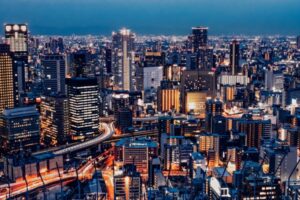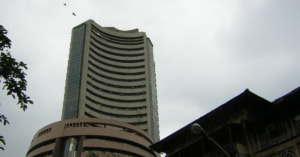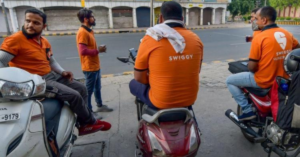Gaurav Gupta, Bruhat Bengaluru Mahanagara Palike (BBMP) Commissioner, begins his day early. He starts by checking messages, updates, official phone calls, and Zoom meetings at 6 am, following it up with field visits and physical meetings with public representatives and community leaders.
For Gaurav and his team, there is zero margin for error amid India’s raging second COVID-19 wave. And there are now signs that this relentless drive to save lives and create a real impact on the ground is paying off.
For the first time on May 28, the number of vacant (available) beds has exceeded the number of occupied ones. Additionally, the demand for beds is falling and so is the demand for crematoria, Gaurav Gupta, Commissioner, BBMP tells YS in an exclusive interaction.
“We are in a safe zone now, and in the future, would have to (relentlessly) insist on vaccinations,” he says.
Gaurav took over as Commissioner of BBMP in January 2021 at a time when the number of cases was significantly lower. However, the second wave started to peak in April 2021, and Karnataka was among the states that saw a sharp increase in cases.
Gaurav Gupta with a team member
But thanks to Gaurav and his team’s unrelenting efforts — ranging from setting up COVID care centres, ambulances services, and building systems to ensure availability of beds — there now appears to be some respite for people on the ground in Bengaluru. Across the country too, cases have been declining with India now recording 2.1 lakh cases versus 4 lakh a day the peak of the second wave of the COVID-19 pandemic.
“It just isn’t me. All BBMP staff — more than 15,000 people — have been working throughout the crisis. This includes the ground-level staff who get testing, vaccination, and house visits done along with hospital staff, command and control room doctors, and others. A vast majority of them work round the clock,” he says.
Hospitals that were already treating many patients found themselves stressed by the numbers.
“This meant going back to the drawing board and working out a plan that could be implemented to help curtail the spread of the virus in every way possible,” he says.
They set up ambulance helplines, worked to increase the bed and care facilities on ground, and brought more people to join the battle against COVID-19.
Gaurav explains that most of the measures that individuals were taking had reduced drastically with the unlocking. “Gatherings, weddings, parties, and social meetings started, leading to the virus spreading quickly.”
The demand for beds shot up and the BBMP worked to ensure that new patients who needed a bed got it as soon as possible.
He explains that they began with implementing an order by the state government to reserve beds for patients referred by BBMP, government/private hospitals, and government/private medical colleges.
As of May 25, 2021, 13,332 beds have been reserved for COVID patients under the government quota. These include the general, HDU, ICU, and ICU with ventilator beds. Efforts are continuing to add more beds of all categories.
Dignity in death
As the toll increased, so did the lines at crematoriums across the city. The BBMP swung into action immediately.
“Nearly 500 ambulances have been in service for COVID patients across the jurisdiction of BBMP. Also, 120 hearse vans have been pressed into service. Twelve electric crematoriums have been designated to cremate the remains of COVID patients in BBMP jurisdiction,” Gaurav says.
Temporary arrangements have been made at TR Mill, Tavarekere, and Giddanahalli for cremations using wood.
All these services are being provided free of cost. A 24X7 control room to reserve slots at these crematoriums has been established; citizens can call 84959 98495 to block a slot, based on availability.
“BBMP Marshals and Police have been deployed at the crematoriums to ensure COVID-appropriate behaviour and avoid mass gatherings. Nodal officers have been appointed to manage these electric crematoriums for optimising their functionality and to collect and report the daily number of cremations, etc,” he says.
He adds that the number of deaths is reducing, which is “a positive sign”.
At-home care and vaccinations
COVID patients with mild to moderate symptoms do not require hospital care, and those with adequate facilities at home opt for home isolation.
“These people are supplied with home isolation kits with medicines to help them recover. BBMP is in the process of delivering nearly 2 lakh kits to patients in home isolation,” Gaurav says.
The vaccination drive, which started on March 1, is on track, with over 23.53 lakh doses administered to date. With 140+ primary health centres and private hospitals, there are more than 500 centres where vaccinations are in progress.
Tackling a tough situation
Gaurav says the BBMP is setting up beds and oxygenated beds to ensure the best healthcare facilities for all citizens.
“About 25 COVID Care Centres (CCC) have been established across eight zones to accommodate patients with mild to moderate symptoms, and those who don’t have the facility to isolate at home.”
Twelve BBMP maternity homes have been modified into transit oxygen centres; this has augmented the overall bed capacity by 250.
“Given the increase in the number of COVID patients requiring oxygen support, at least 20 percent of beds within each CCC are being converted to oxygenated beds. A total of 49 Physical Triage Centres (PTCs) have been set up across the eight zones.”
These centres function round the clock with a team of doctors and nurses to assess walk-in patients or those referred by zones.
“The PTCs triage patients and, based on their medical condition, advise either home isolation or hospitalisation by blocking a bed through COVID Hospital Management Systems ( CHBMS). These PTCs are attached to healthcare facilities with oxygenated beds, which can be used to treat moderately symptomatic patients and to stabilise patients until they are accommodated into critical care beds,” Gaurav says.
A second call centre has also been set up at Transact Global BPO and Call Center, Yeshwanthpur, to share the load of 1912, the COVID ambulance helpline.
Creating a decentralised system
Gaurav says the idea is to help every possible citizen. Data management systems are ensuring that there is proactive call out and work done. “Our goal is to create a decentralised system where people can be triaged, assisted, and given the right help,” he says.
Decentralisation efforts began when the second wave hit, but the challenge was the scale and speed at which the virus spread. Every BBMP official rallied to “create as many safe zones and environments as possible”.
“We have also had a deployment of 20 home guards at all 109 police stations, to enforce COVID appropriate behaviour like masking, sanitisation, and social distancing,” Gaurav adds.
Instructions were also issued for allocation of beds for RTPCR/RAT negative and HRCT suggestive patients as per a government directive to use a syndromic approach.
All private hospitals registered under the KPME were immediately notified to mandatorily update real-time data of the Non-SAST vacant beds under all categories (regular/HDU/ICU and ICU with ventilator beds) in the public portal.
Help desks for citizens
Nodal Officers have been appointed for all 198 wards, based on orders from State Disaster Management Committee. They help in establishing the Decentralised Triage and Emergency Response teams for efficient management of the pandemic, including patient identification, contact tracing, management of patients in home isolation, mass vaccination, etc
Citizen help desks have been set up at private hospitals, with 55 teams at major private hospitals across BBMP. “These help desks function round the clock, clarify any queries/issues raised by people, and help in the admission process of COVID patients,” Gaurav says.
He adds that every hospital has also been allotted a Nodal Officer who supervises the admission/discharge process. “Steps have been taken to increase these help desks at other hospitals too.”
Gaurav says the number of recoveries and discharges has now increased while positive cases have decreased. “It shows a healthy trajectory, but to keep on this path we need active support from people. It is more important now that people follow COVID-appropriate behaviour and ensure their family and friends also do.”
Appealing to citizens, he says there can be further decline and resumption of economic activities if everyone comes together to fight the pandemic. “Community has and will always play a strong role. A pandemic of this magnitude can be combatted only with community efforts.”

![You are currently viewing [YS Exclusive] For the first time, Bengaluru has more vacant beds than occupied ones, says BBMP Commissioner Gaurav Gupta](https://blog.digitalsevaa.com/wp-content/uploads/2021/05/Imageennb-1622220914907.jpg)






![Read more about the article [Startup Bharat] This Coimbatore-based biofuel startup wants to build a one-stop platform for a fragmented space](https://blog.digitalsevaa.com/wp-content/uploads/2022/05/ImagesFrames50-1651668371191-300x150.png)
